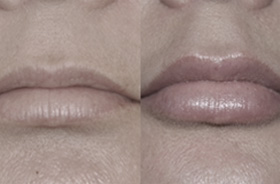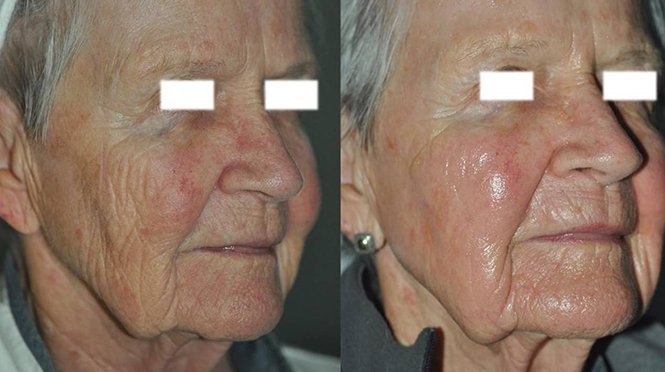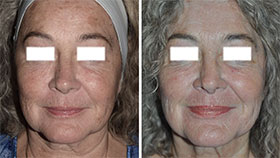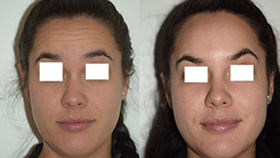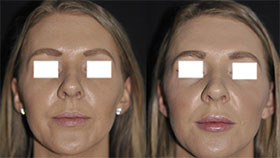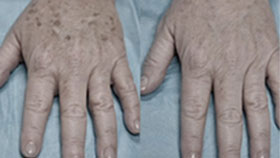Is There a Relationship Between Our Diet and the Skin?
I am frequently asked by my patients if diet is the cause of their skin condition. Marco Island and Naples area men and women also routinely want to know if there are dietary treatment options for their particular complaints. This subject matter is difficult to delve into in a concise manner, partly because the topic is so broad, but mostly because the science isn’t clear. Bottom line (and the answer isn’t novel): The recommendation is to eat a well-rounded diet and enjoy everything in moderation.
There is one exception: a skin condition where the role of diet is very clear. Dermatitis Herpetiformis is an itchy, blistering skin condition that is often associated with celiac disease. Patients with this condition are likely genetically predisposed. They must avoid all gluten because it triggers an immunologic response that causes inflammation of the stomach and the skin.
Some believe in “anti-inflammatory” diets for skin conditions like psoriasis and eczema. Foods thought to cause inflammation include:
• red meat
• processed foods
• refined sugar
• dairy
It is better to choose lean proteins like chicken, fish, and beans; to eat fresh foods rather than processed; and to consume dairy in moderation. Flax seed, olive oil, pumpkin seeds, and walnuts are considered to be anti-inflammatory. There has always been debate about the inflammatory nature of nightshade vegetables (potato, tomato, eggplant, bell pepper, paprika, cayenne pepper). There really isn’t enough evidence to demonize these nutritious foods, and avoidance of these foods is not endorsed by medical societies such as the National Psoriasis Foundation, Arthritis Foundation, and the American Academy of Dermatology.
There is data to demonstrate that psoriasis improves with weight reduction. Sorry folks, I know it’s not a riveting new theory, but a balanced diet combined with exercise will result in weight loss and improvement in the skin.
As a teen, I remember people telling me pizza and chocolate would make my acne worse. While this tale isn’t completely true, there is some evidence in the acne literature that supports limiting dairy and avoiding a high-sugar diet.
I do think each of us may have different triggers for our skin. I always recommend listening to your body. If you feel a certain food exacerbates your skin condition, I do think avoidance of said food is key.
Despite what you might find on the Internet, there isn’t enough scientific evidence to provide a definitive answer to the question above. For now, we must consume healthy whole foods and eat in moderation.
Talk to the Skin Wellness Physicians team to find out more about medical skin conditions and what can be done to treat them—or at least manage symptoms. Call (239) 732-0044 or send a message online.



